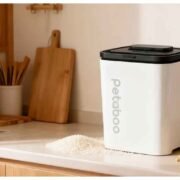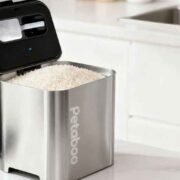The human body is made of up to 60% water. In order to survive and stay healthy every day, you need to keep yourself hydrated from the moment you wake up until the time you have to go to bed.
But how can you ensure that the water you’re drinking isn’t dangerous or contaminated? After all, just because the water’s crystal clear, that doesn’t mean it’s safe to consume. You can read this blog post to learn more about the emerging contaminants you have to be more mindful of. But if you want to keep your drinking water clean, here are some of the ways you can do just that:
-
Filter Your Water
Filtering your water at home can offer another line of defense from contaminants that may come from your local utility provider. Though according to some experts that it’s not completely necessary, many still recommend this method for better water quality.
Today, you’ll be able to see a lot of water filters on the market. However, not all of them are created equal. To make sure that your water’s being filtered properly, choose a reliable water filter. You can read some online reviews from customers to have an idea about the quality and effectiveness of a certain filter.

-
Test The Water
If you’re getting your drinking water from a well, it’s highly recommended that you have it tested on a regular basis by state-certified testing labs. This way, you can determine if the water has contaminants such as nitrates and bacteria that may have slowly leaked through the soil and into the underground aquifer.
Experts recommend water testing at least every other year or every year. On the other hand, you should also consider testing for certain contaminants such as lead. This is especially crucial if you’re concerned about the drinking water provided by utilities.
-
Be Careful With Chemicals
Minimize using pesticides and fertilizers on your lawn, and make sure to take all used oil and antifreeze to service centers or recycling stations to be disposed of properly. Similar to industrial agriculture, among the leading sources of water pollution are chemicals used in yards as well as those dripping on the driveway that may leak into the underground water. In due course, they can go into streams, lakes, and rivers where people usually draw water from. After some time, pollutants may also seep into wells, regardless of how deep they are.
Aside from that, you shouldn’t flush unused medicines, either. Doing so may contribute to the trace amounts of medications that end up in drinking water.
-
Know Where Your Water Comes From
Knowledge is power, so you can use it to make sure that you’re drinking clean and safe water. Keep in mind that water doesn’t just flow out of the tap by magic. The process involved in bringing water to your home is quite long, and rivers play a crucial part in it.
Tap water usually goes through treatment plants in order for it to be usable. Before that, it comes from rivers and streams, and that water supply keeps modern communities running.
The best way to find out whether your drinking water is safe for consumption is to ask your local utility. They can also provide you with information about the source of your water and how it’s treated before it reaches your plumbing system at home.
-
Keep Your Plumbing At Home Updated
Did you know that paint isn’t the only carrier of toxic metals in an older home? If you currently have lead pipes within your property, then now’s the best time to change them. Lead coming from pipes may contaminate water and possibly cause development issues in kids and other problems like compromising kidney function and increasing blood pressure in adults.
Moreover, corroded copper pipes are a main source of copper in the water we drink. Long-term exposure to high levels of copper in drinking water may cause kidney and liver damage.
-
Boil Water
When directed by the health authority and local government, make sure to follow orders, especially if they ask you to boil water from the tap. Typically, boil water advisories go into effect in response to concerns regarding water contamination, such as after a natural disaster or a big main break.
To avoid getting sick, you can also consider drinking bottled water instead of tap water.
Final Say
Contaminated drinking water can be dangerous to your health, and it may lead to some severe health conditions. To prevent that from happening, ensure the quality of your drinking water with the help of the tips mentioned above.











